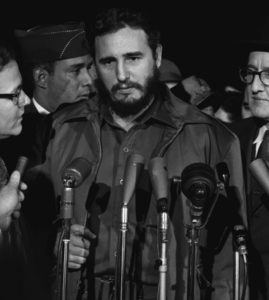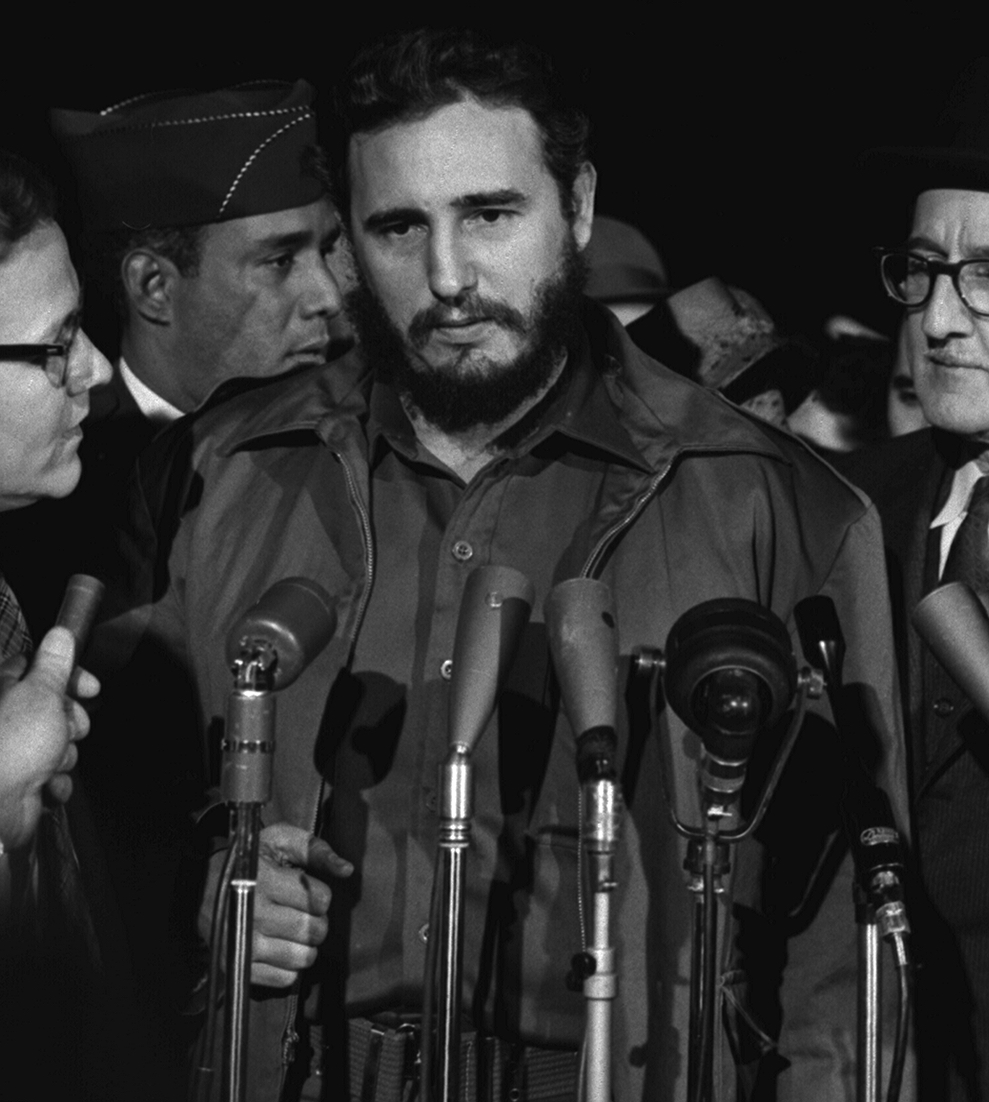On Sunday, Michael Jimenez’s grandmother opened a bottle of wine that was given to her years ago for one specific purpose.
The bottle read, “To open the day that Castro is dead.”
Fidel Castro, longtime leader of Cuba’s communist revolution, died at 90 years old, Nov. 25. The news was nothing but relief for the Jimenez family, who has had their whole lives changed because of him.

“Castro has affected my family in many ways,” he said. “My grandfather was arrested by Castro because he had a voice and spoke his mind.”
Jesus Jimenez spent time as a political prisoner and Castro made it impossible for him to leave Cuba for many years.
Castro made it almost impossible for even his brother to leave the country.
Michael Jimenez’s mother made it to the United States before he was born, he has still felt the effects in his own life.
“Now I have family in Cuba that I am unable to meet,” he said.
With nearly 50 years as self-appointed president, Castro served for the longest period as a non-royal leader in the 20th century. Castro seized control of the Cuban government in 1959 after leading a group of communist guerrillas against Cuban dictator Fulgencio Batista.
Over the years he acted as a communist dictator, ostensibly bringing social and economic equality to the Cuban people while at the same time eliminating free speech, free and fair elections, private property ownership and opposing political parties.
Castro aligned Cuba with the Soviet Union and ruled in the model of other Soviet bloc dictators who used the USSR’s backing to keep a tight grip on power at the expense of civil and human rights.
Castro stepped down after barely surviving an intestinal illness. He’s been sick and rarely photographed ever since. His brother, Raul, officially took power in 2008 when elected president. The Jimenez family weren’t alone in awaiting the dictator’s death.
When the news broke, Cubans in Miami rushed to “Calle Ocho” or Eighth Street, Miami’s historic center of Cuban culture, to celebrate his passing. Police had to close off part of the busy street, knowing the event would draw a significant crowd.
Some held Cuban flags high while others banged on pots and pans to celebrate their happiness, their joyous gathering stretched long into the night.
Castro’s brother, Raul Castro, has been in power since 2008. But Castro’s passing stands as an important symbol for the Cuban exile community. This man’s leadership completely turned their lives upside down.
“I don’t know what it will mean since his brother is now in control, but I see that it means that Cuba will be free one day,” Jimenez said. “I hope I still have my grandparents so they can see this happen.”
Raul Castro will continue in power until 2018, but Jimenez is still relieved for his family.
“I’m just glad that they were able to outlive Castro and they can be happy to know that he is gone for good.”
In the wake of Castro’s death, there have been discussions as to whether or not he was a good man. Jimenez feels like people who try to paint him in a positive light are not completely educated on what he did.
“A friend of mine said that Castro had done good things for Cuba, which is somewhat true,” Jimenez said. “That doesn’t hide the fact that this man has gone 60 years killing people who were demonstrating their right of speech. He oppressed them by either putting them in jail or killing them without a trial.”
Jimenez has seen the effects on his family members firsthand.
“He put many innocent people through living hell and my grandfather is living proof of that oppression.”
The Jimenez family is just one of the many Cuban families dealing with Castro’s death and what this monumental change means to them.



